READY TO GET STARTED?
REQUEST A FREE ESTIMATE
Fill out the form below or call (888) 466-7849 for a free, no-obligation estimate.
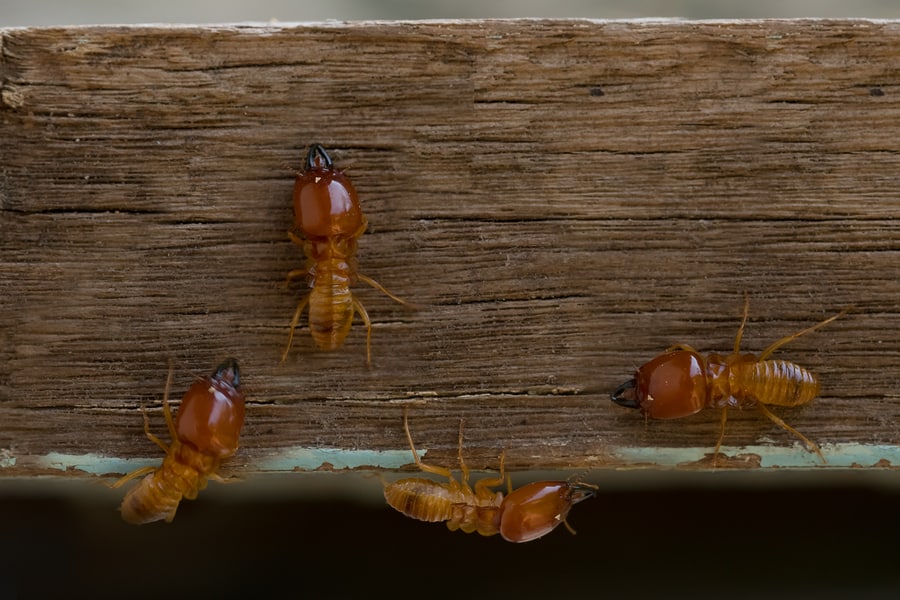
Discovering termites in your Tennessee home can be a concerning thought. Each year, termites cause billions of dollars’ worth of damage to homeowners. Don’t let your home fall under this statistic. We have all the information you need to begin termite prevention now.
Termites can’t level your home within a week or within five years, but over time they will eat away at your home from the inside out. They are difficult to spot and are incredibly quiet destroyers. The earliest signs of termite damage can be seen within months of them infiltrating your home.
One way to avoid property damage from termites is to have your home inspected once or twice a year. The best way to prevent termites is to have long-term termite control in place.
In the meantime, here are some DIY termite prevention methods you can do today:
Are you ready for long-term termite prevention in your Tennessee home? Give your local pest control company a call today and receive a free inspection to begin keeping termites away!
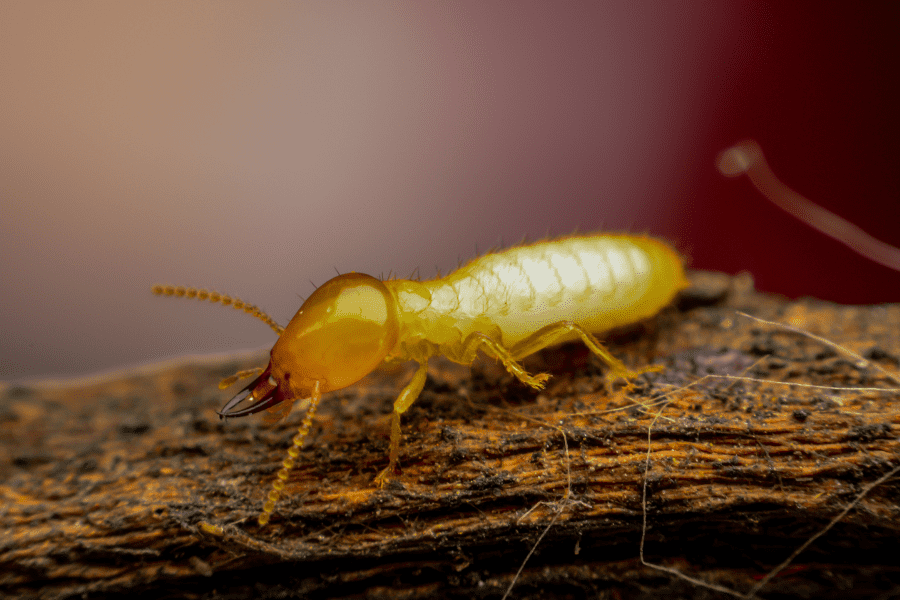
There are two factors to consider when looking at termite control: preventing them from infesting your home and treating established termite colonies. Termites are year-round pests and can go undetected for a long period of time, causing devastating damage in the process. There are several prevention methods to consider when looking to eliminate or prevent termites from your Laurens home.
One of the best and most effective ways to keep termites out is to remove any access inside your home, including gaps around water and gas lines where they enter your home. Likewise, inspect your foundation for cracks or openings and repair them immediately.
To survive, termites need wood and moisture. Eliminating these factors can help reduce your chance of a termite infestation. If you place mulch against your foundation for landscaping purposes, you could be attracting termites into your home. Mulch is a great source of food for termites as they retain any moisture. Try to minimize the use and keep it at least 15 inches away from the foundation. Additionally, if your crawlspace is experiencing a lack of airflow, it can create an ideal environment for these pests. Consider enclosing your crawlspace to prevent these termites and improve the overall health of your home by reducing moisture and decreasing humidity.
Termites can be tricky to control and eliminate! These pests will cause significant damage to your home, sometimes before you even realize they have infested. Placing preventative measures in your home to reduce the chance of a termite infestation will always help, but sometimes it’s best to leave it up to your local Laurens pest control company. These professionals can perform an annual termite inspection and provide you with the best termite control and prevention options for your home.
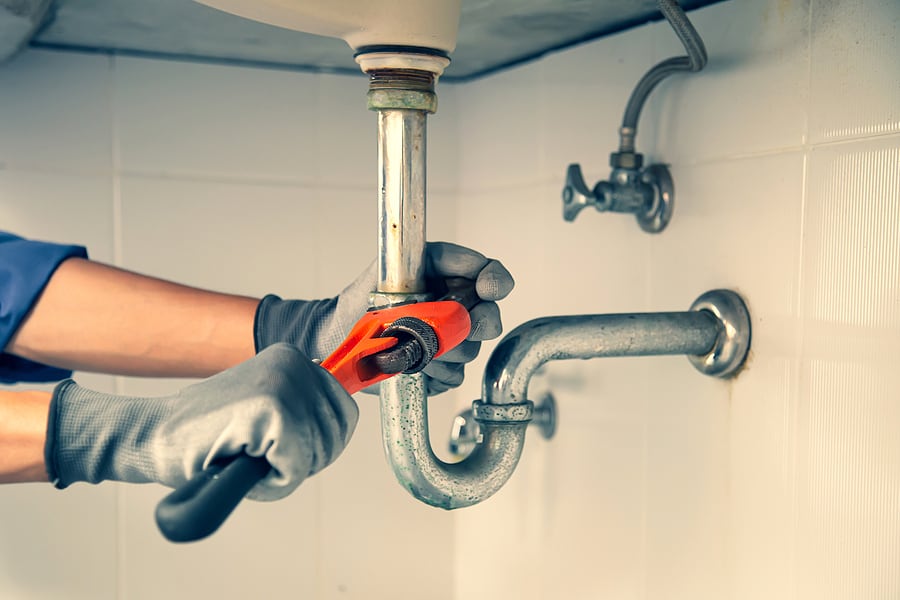
Hot, humid weather is inevitable when you live in the Fort Lauderdale area. Unfortunately, pests like termites thrive in these conditions, looking to our homes for a food source. Termites will eat wood inside out, sometimes going undetected for a long period of time. Some common termite species include drywood termites and subterranean termites. To enhance termite control around your home, it’s important for every homeowner to utilize preventative measures throughout their property.
Improper drainage is one of the most common reasons termites infest. Subterranean termites are looking for moist wood to infest, causing significant structural damage. Our gutters often clog, causing water to pool and create insulation vulnerable to termites. Likewise, the leaves, twigs, and debris can get caught and build up in gutters, softening your roof and causing it to rot. Divert your down-spout away from your home and consider utilizing splash blocks to prevent pooling water.
Showing off your beautiful landscaping and a green, lush yard is ideal for every homeowner. Unfortunately, the materials we sometimes use to create this can be beneficial to termites. Landscaping mulch can be aesthetically pleasing, but unfortunately, it can attract termites into our homes. Try to minimize your use of mulch but if you do utilize it, keep it away from your foundation by at least 15 inches.
Excessive moisture can cause multiple problems for your home, including termites. Leaking pipes or lack of airflow can create an ideal environment for these pests. A major step in preventing termites is eliminating excessive moisture inside the home. Enclosing your crawlspace is a great way to not only prevent termites and other pests, but to also improve the overall health of your home.
If you’ve taken as many precautions as possible to avoid termites but are still looking for extra protection, consider reaching out to your local Fort Lauderdale pest control company. These professionals can provide you with a termite inspection and a treatment and prevention plan customized to your home.
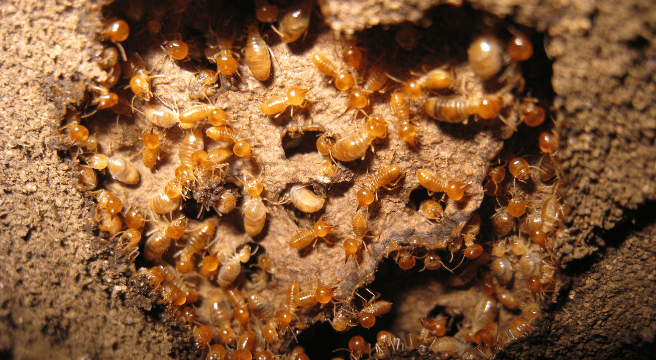
With the warmer months creeping up on us, it’s time to start preparing for the termite swarming season. Termites cause billions of dollars in damage each year and infestations are normally not found until considerable damage has already been done. It’s important to know what types of termites are active in your area to understand ways to prevent them from causing damage to your home.
The most common type of termite in the southeast is the subterranean termite. This termite species lives in underground colonies with as many as two million members but can also be found in moist, secluded areas above ground. They are the most destructive termite species and, over time, can potentially collapse a building. This is due to their hard, saw-toothed jaws that work like shears and can bite off extremely small fragments of wood, one piece at a time. They typically begin their swarming season in early spring, usually during daylight hours.
Swarming is beneficial when creating new colonies. Termites swarm after a colony has reached a certain capacity and is ready to expand. This normally happens once per year for most colonies. Hundreds or even thousands of swarmers, also known as alates, are produced with the sole purpose of reproduction and expansion.
Swarming can occur indoors or outdoors. They cannot survive indoors because of the lack of soil to colonize. If found indoors, they are usually found near windows and light fixtures as they are attracted to light. Whether indoors or outdoors, they usually can’t cause damage. As swarmers, they can’t bite, sting, or chew. The presence of swarms indicates that a colony is nearby, though; so although the swarmers can’t cause damage, the nearby colony can.
There are many ways to prevent swarming from happening. The first step is to eliminate any termite colonies in the area. To prevent termites, make sure there are no water sources nearby, including standing water around your home. Also, routinely inspect your foundation for loose mortar or bubbling paint to see if there are termites present.
Because a termite swarm indicates a nearby colony, homeowners should take precaution when one is spotted close to home. If you suspect you have a termite infestation, contact a professional local pest control company who can inspect your property and set up a termite control plan.
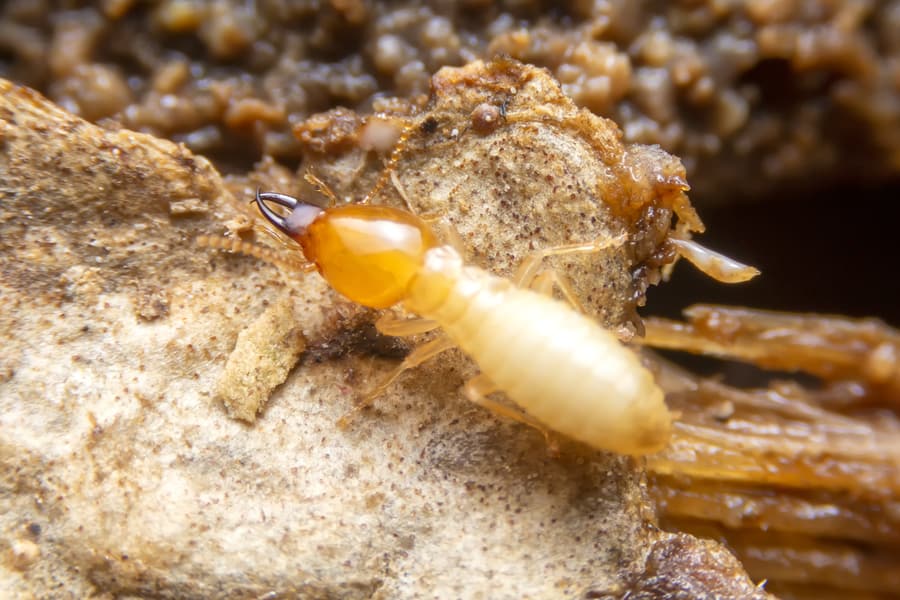
Did you know that certain termite species, such as subterranean termites, are active year-round? This means that even on the hottest or coldest days of the year these pests can still cause considerable damage and destruction to your property. Termites are in search of two things: a food source and a place to establish their colony. The first step in preventing termites is knowing what attracts them so you can take the necessary precautions to avoid them!
Termites like to colonize near a food source, most often soft or rotting wood. Firewood and other wood piles throughout your property are a major attractant to termites. This wood provides them with both a supply of food and a place to create their colony. If you must have this wood on your property, place it at least 20 feet from your home and elevate it at least 5 inches off the ground.
Summer showers are inevitable, meaning that your gutters could quickly become clogged. While clogged gutters can damage your home’s foundation, they can also attract termites. As the debris blocking the gutters accumulate, the excess moisture can soften your roof and cause it to rot. These areas provide termites an easy way to get inside your home. Make sure that your gutters are cleaned out regularly, especially after a bad rainstorm or consider installing gutter guards.
Every homeowner wants their yard to look aesthetically pleasing but sometimes the materials used for landscaping (like mulch) can attract termites to your home. Mulch is comprised of wood chips that can retain moisture, making it a perfect source of food for termites. Instead of mulch, consider using landscaping rocks; if you do use mulch, place it at least 15 inches from your foundation.
If you suspect a termite infestation or just want to get ahead of preventing them, consider calling your local pest control company where they can provide you with the best termite control options for your home.